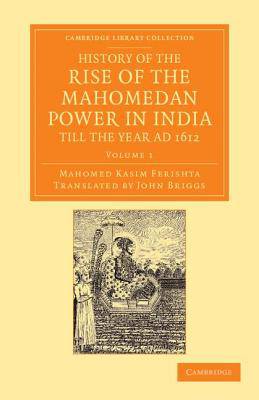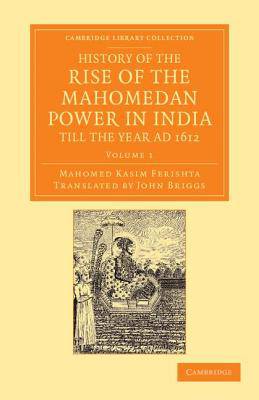
- Afhalen na 1 uur in een winkel met voorraad
- Gratis thuislevering in België vanaf € 30
- Ruim aanbod met 7 miljoen producten
- Afhalen na 1 uur in een winkel met voorraad
- Gratis thuislevering in België vanaf € 30
- Ruim aanbod met 7 miljoen producten
Zoeken
History of the Rise of the Mahomedan Power in India, Till the Year Ad 1612 - Volume 1
Mahomed Kasim Ferishta
€ 130,45
+ 260 punten
Omschrijving
The Persian chronicler Ferishta (1560-1620) composed his great work, published in this four-volume English translation in 1829, at the court of Bijapur - where he spent most of his life - under the patronage of King Ibrahim Adil Shah II. It covers Muslim India from around 975 to 1612 and is notable for its balance, despite Ferishta's close involvement with some of the events and people he records. In the translator's preface, East India Company officer John Briggs (1785-1875) highlights the danger of misconceptions about the people of India and the importance of religious policy in the success or failure of her various governments. Volume 1 includes introductory matter, a chapter on pre-Muslim India, histories of the Ghaznavid kings of Lahore, and information on the rulers of Delhi. Also included is Briggs' valuable comparative chronology of events in Europe and India.
Specificaties
Betrokkenen
- Auteur(s):
- Vertaler(s):
- Uitgeverij:
Inhoud
- Aantal bladzijden:
- 704
- Taal:
- Engels
- Reeks:
Eigenschappen
- Productcode (EAN):
- 9781108055543
- Verschijningsdatum:
- 28/03/2013
- Uitvoering:
- Paperback
- Formaat:
- Trade paperback (VS)
- Afmetingen:
- 140 mm x 216 mm
- Gewicht:
- 879 g

Alleen bij Standaard Boekhandel
+ 260 punten op je klantenkaart van Standaard Boekhandel
Beoordelingen
We publiceren alleen reviews die voldoen aan de voorwaarden voor reviews. Bekijk onze voorwaarden voor reviews.











